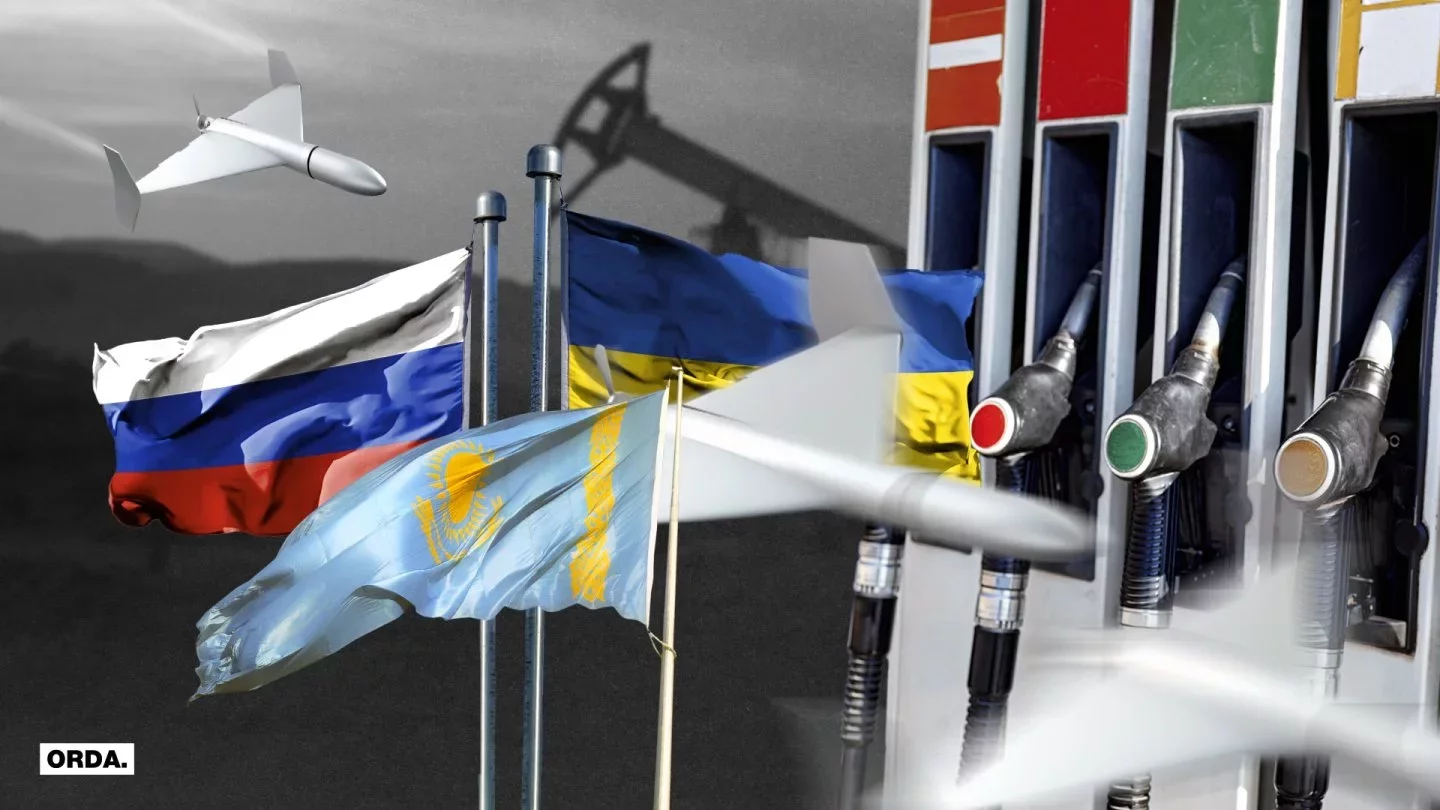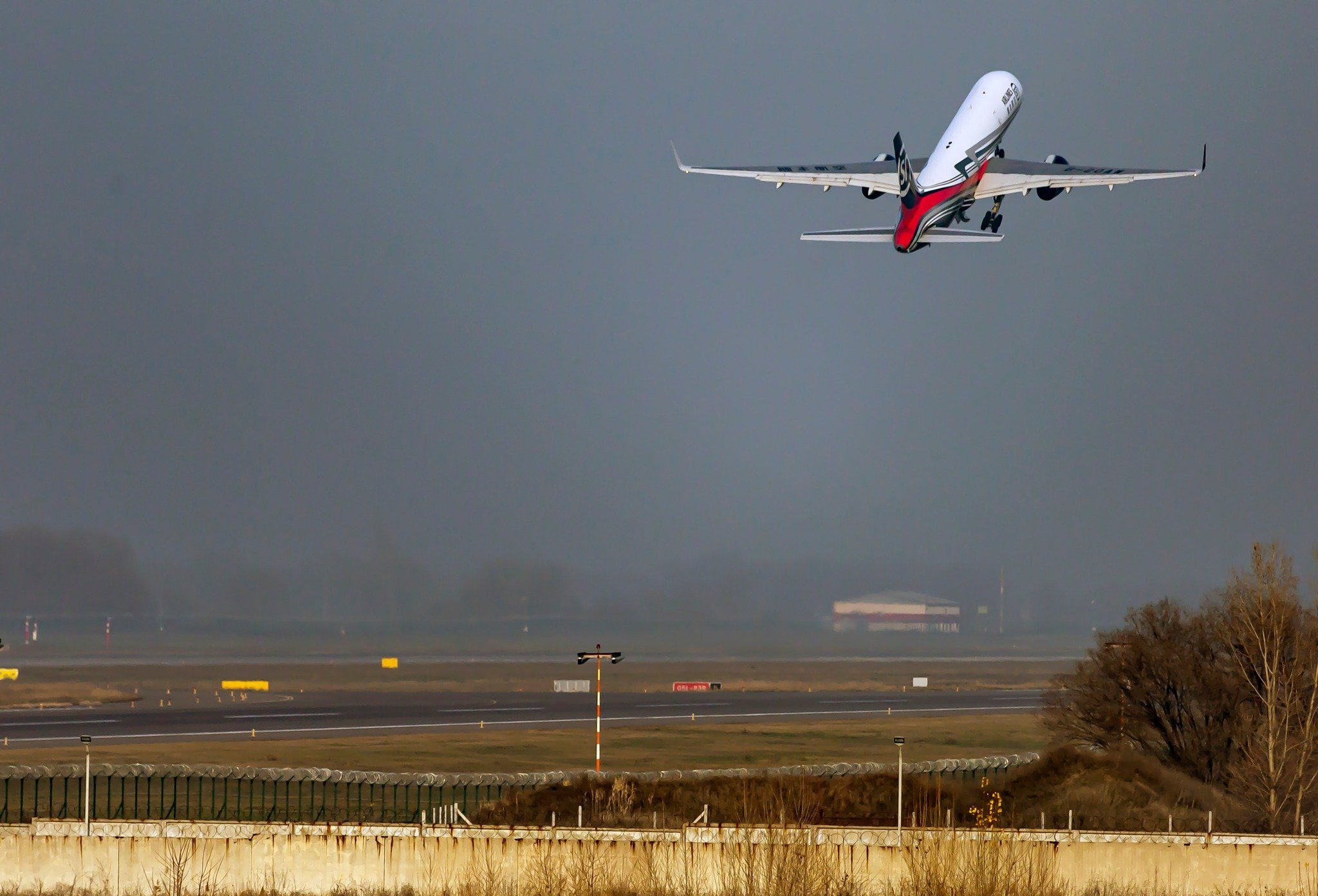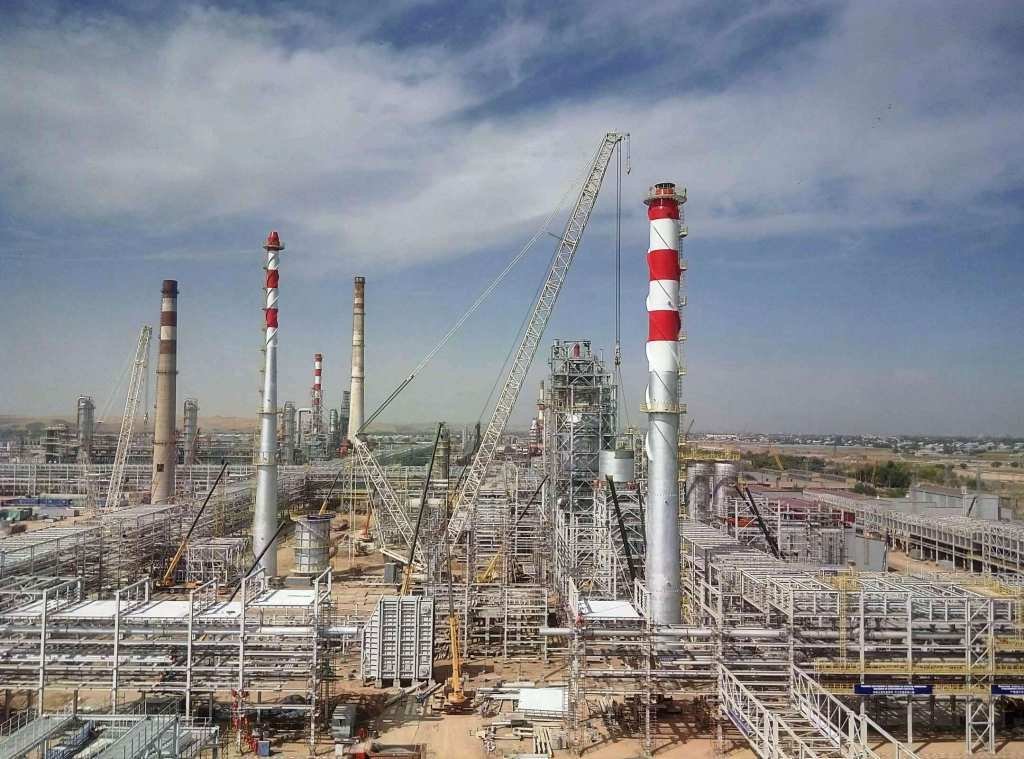Ukraine's Strikes on Russian refineries. How Will This Affect Kazakhstan?

Since the beginning of 2024, Russian oil refineries have already been attacked 15 times by kamikaze drones.
Despite having three of its own refineries, Kazakhstan purchases part of its petroleum products from Russia. Orda.kz spoke with Nurlan Zhumagulov, director of the Energy Monitor public fund, about whether the attacks could affect fuel supplies to the Republic of Kazakhstan.
Attacks on Russian refineries have become more frequent in March. A third of the 15 attacks occurred in the first month of spring. Drones have attacked oil refineries in Ryazan, Nizhny Novgorod, Kaluga, Syzran, and Sloviansk-on-Kuban. There were reports about an attack on the oil refinery in Novokuibyshevsk, but there was no confirmation.
Nurlan Zhumagulov believes this will not affect supplies from the Russian Federation. Russia has a surplus of petroleum products, thus ensuring the already approved volume to be sent to Kazakhstan. This notably concerns diesel fuel. According to Zhumagulov, the indicative balance approved for 2024, that is, the potential volume of imports, is 450 thousand tons. This is almost half of last year's amount (850 thousand tons). The expert explained that only half was imported from the Russian Federation.
We export about 10% of diesel fuel from Russia. And mostly it was winter diesel fuel because Kazakhstan produced it in small volumes. But now they are being built up. In terms of gasoline, these are mainly premium brands - from 95 and above. But the volume of their imports is even less, says the expert.

According to Nurlan Zhumagulov, three Kazakh refineries in Shymkent, Pavlodar, and Atyrau are capable of providing the bulk of the petroleum product supply to Kazakhstan's market. The country has a surplus of AI-92 gasoline thanks to domestic production.
The only product for which issues may arise is aviation kerosene. There is also enough for domestic consumption. Zhumagulov highlighted the Almaty airport, where there is an abundance of kerosene. However, after the onset of the full-scale war in Ukraine, planes from many countries began to bypass Russia, thus bringing about a need to refuel in other countries, including Kazakhstan, and in particular, Almaty.
Meanwhile, as the expert says, the Republic of Kazakhstan produces only two-thirds of the required volume of kerosene and imports a third from Russia for the time being.

But if attacks suddenly lead to Russia not being able to export jet fuel to Kazakhstan, it could potentially be bought from another neighbor.
The Minister of Transport has repeatedly stated his intentions to import aviation fuel from China, that our airports will be prepared for sustainable Jet-A1 fuel, Zhumagulov said.
China, according to the expert, could become a possible source of imports of petroleum products. Kazakhstan's raw materials are sent abroad, processed, and returned as finished products. Kazakhstan and China have already operated in this manner.
The expert nonetheless believes drone strikes on refineries have not particularly affected Russia so far.
These factories have already been restored. Attacks do little damage. These are mostly fires that are extinguished fairly quickly. Gasoline prices have indeed increased in Russia, but only by 1.5%, says Zhumagulov.
Ukrainian drones have yet to reach the largest factories, such as those in Neftekamsk. Zhumagulov believes that even if they are attacked, this will be a problem specifically for Russia and will have virtually no impact on Kazakhstan.
Nurlan Zhumagulov urges to pay attention not to Russian refineries but to Kazakhstani ones. This year, the three oil refineries in Shymkent, Pavlodar, and Atyrau will undergo repairs.

This should not present any issues, as the repairs are planned, and there are reserves of petroleum products. Yet, Zhumagulov notes the following point concerning the Shymkent Refinery:
The Jambyl region has become one of the largest consumers of gasoline. But this fuel simply “seeps into” Kyrgyzstan with which the Jambyl region has a border. We have a ban on export by tank trucks and railway transport. But there are cars with a tank capacity of 150 liters. They calmly cross the border and make several trips a day.
The expert recalls that until a certain time, a similar problem was created by Russian drivers, who bought fuel at Kazakhstan's gas stations, as it was cheaper in rubles. But gradually the exchange rate changed, thus putting an end to this practice.
Original Author: Igor Ulitin
DISCLAIMER: This is a translated piece. The text has been modified, the content is the same. Please refer to the original piece in Russian for accuracy.
Latest news
- Grave of Noble Nomadic Warrior Unearthed in Turkistan Region
- Kazakhstan Suspends Karachaganak Gas Plant Project With Foreign Partners
- Toqayev Opens CICA Headquarters, Highlights Importance of Diplomacy Amid Global Tensions
- Chinese Company Sinopec Launches 4.7 Billion Tenge Oil Drilling Project in Mangystau
- Ukraine's MoD Claims No Official Notice Received from U.S. on Munitions Suspension
- Azerbaijani Ministry of Science and Education Urges Caution Over Claims of Ending Russian-Language Education
- Alexander Lukashenko Pardons 16 People, Including Those Convicted of “Extremism”
- U.S. Reportedly Floated Corridor Deal via Armenia — Carnegie Report
- Orda.kz talks with Expert on Recent Escalations between Moscow and Baku
- Court Reviews Corruption Case Involving Samruq-Qazyna Subsidiary in Atyrau
- Claims Surface that Azerbaijan Plans to Close Russian-Language Schools
- Publishing House with Bomb Shelter Privatized in Almaty Returned to State Ownership
- 5,000 Dombra Players Set National Record in Taldykorgan
- A Piece of the Shoreline Pie: How Sarsenov Lost His Aqtau Land and Kulibayev’s Role
- Armenian Parliament Makes Initial Moves to Nationalize Electric Networks of Armenia
- Toqayev Orders Tighter Migration Control, Calls for Unified Digital Systems
- Kazakhstan: Forecasters Warn of Heavy Rains in the North, Scorching Heat in the South
- Who Writes the Rules? Trump’s Former Associate Discusses Kazakhstan’s Current Position with Orda.kz
- Omsk Governor Proposes Boosting Trade with Kazakhstan via Irtysh River
- Kazakhstan: Energy Officials and Executives Disciplined Over Sector Violations

